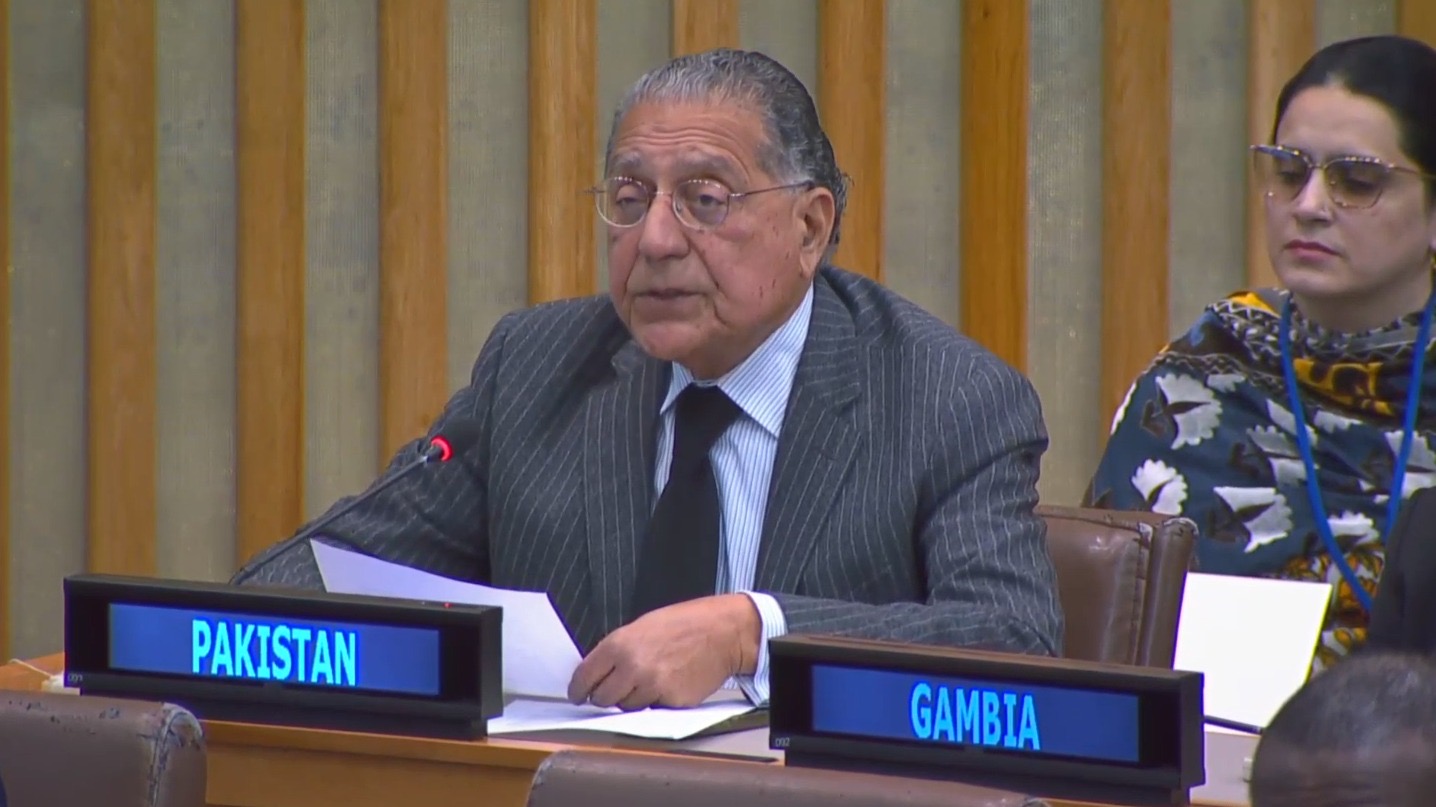
UNITED NATIONS, 23 Oct 2024 New York : Pakistan, on behalf of 80 countries, told a UN panel Tuesday that Xinjiang, Hongkong and Xizang related issues are China’s internal affairs, and called for respect for the country’s sovereignty, independence and territorial integrity.
We oppose politicization of human rights and double standards, or interference in States’ internal affairs under the pretext of human rights, Ambassador Mnir Akram, permanent representative of Pakistan to the UN, said as he delivered a joint statement in the general debate on human rights issues held by the General Assembly’s Third Committee which deals with social. cultural and humanitarian issues.
Respect for sovereignty, independence and territorial integrity of states and non-interference in internal affairs of sovereign states represent basic norms governing international relations the joint statement said.
“We maintain that all parties should abide by the purposes and principles of the Charter of the United Nations, adhere to the principles of universality, impartiality, objectivity and non-selectivity, and respect the right of the people of each state to choose independently the path for development in accordance with their national conditions,” the statement said.
“All human rights should be treated with the same emphasis, with sufficient importance attached to economic, social and cultural rights and the right to development in particular.”
Noting multiple challenges facing human beings, the statement said, “The international community should uphold multilateralism, strengthen solidarity and coordination, and respond jointly to global challenges, advance world peace and development, and promote and protect human rights.”
The countries which signed the joint statement are: Pakistan, Algeria, Antigua and Barbuda, Bahrain, Belarus, Benin, Bolivia (Plurinational State of), Burkina Faso, Burundi, Cambodia, Cameroon, Central African Republic, Chad, China, Comoros, Congo, Cuba, Democratic People’s Republic of Korea, Democratic Republic of the Congo, Djibouti, Dominica, Egypt, EI Salvador, Equatorial Guinea, Eritrea, Ethiopia, Gabon, Gambia, Grenada, Guinea, Guinea-Bissau, Honduras, Iran (Islamic Republic of), Iraq, Kazakhstan, Kenya, Kiribati, Kyrgyzstan, Lao People’s Democratic Republic, lebanon, Lesotho, Libya, Madagascar, Maldives, Mali, Mauritania, Morocco, Mozambique, Myanmar, Nauru, Nepal, Nicaragua, Niger, Papua New Guinea, Russian Federation, Sao Tome and Principe, Saudi Arabia, Serbia, Sierra Leone, Solomon Islands, Somalia, South Sudan, Sri Lanka, State of Palestine, Sudan, Suriname, Syrian Arab Republic, Tajikistan, Togo, Tonga, Tunisia, Turkmenistan, Uganda, United Arab Emirates, Uzbekistan, Vanuatu, Venezuela, Yemen, Zambia,and Zimbabwe
Sub Editor: Ghufran